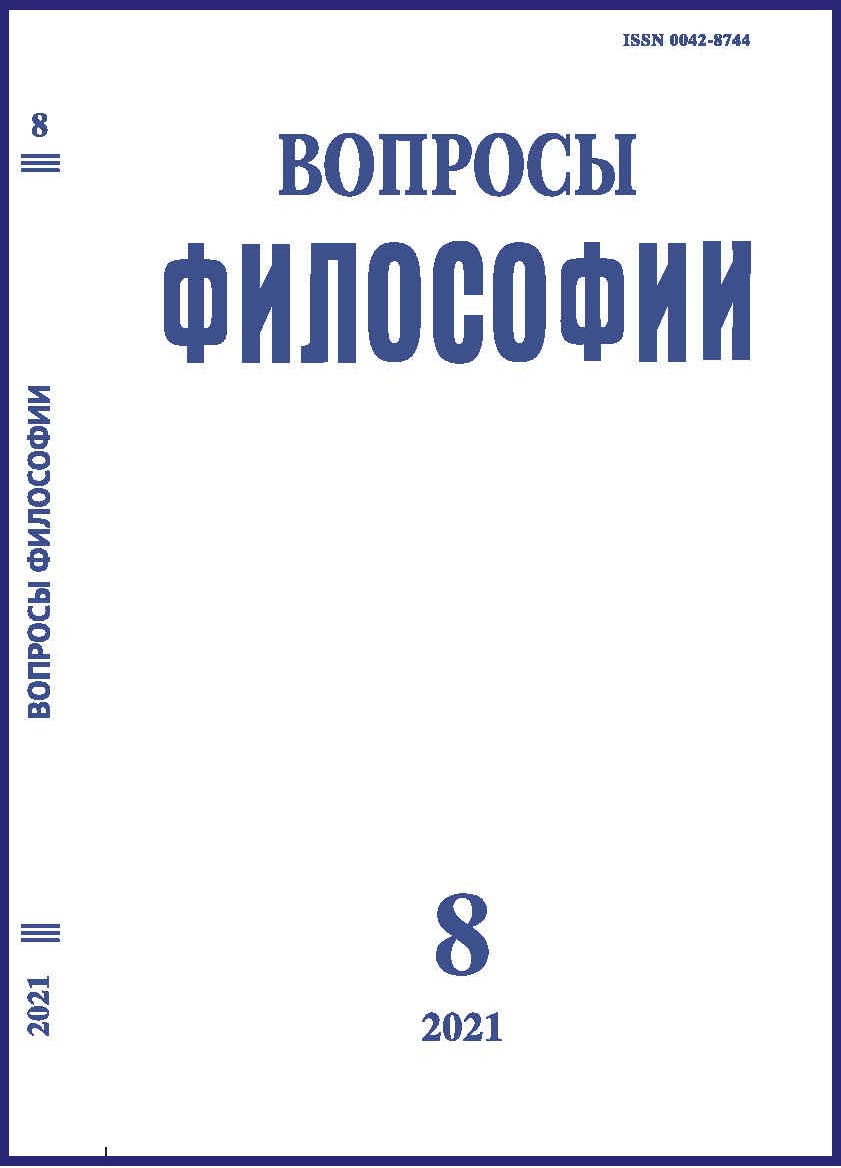Philosophical Insights on the Human Being in Greek-Byzantine Patristics
DOI:
https://doi.org/10.21146/0042-8744-2021-8-142-152Keywords:
Byzantine philosophy, Eastern Patristics, Christian anthropology, image, God-like, deification, philosophy of religionAbstract
The article traces the formation of a new religious and philosophical tradition of consideration of the human being. It was formed in the texts of representatives of Eastern Patristics at the epoch of Trinity and Christology theological discussions in Byzantium from the 4th to 7th centuries. The author presents the early Church Fathers’ ideas of the period of Christian apologetics, who laid the foundation for early medieval Christian anthropology. The work analyzes the significant issues, the solution of which allowed Greek-Byzantine Church Fathers to shape the anthropological tradition of Eastern Christianity. In particular, the author notes the differences in the justification of the Eastern Church Fathers’ Old Testament point on the creation of man in the God’s image and likeness. The researcher stresses the diversity of concepts about the contradictory nature of the human associated with the confrontation of the soul (spirit) and body. In this context, the principle of antinomianism is deduced as the primary method of theorizing about the person in their relationship with God and the created world. Special attention is paid to the Patristics interpretation of the idea of deification, comprehended as the life goal of an individual, and, at the same time, as a process of realization of the highest purpose by unifying two contradictory worlds – Divine and earthly – into one harmonious Universe. Deification is derived as an opportunity to overcome man’s duality and as his righteous path guiding each individual to self-improvement, self-knowledge, and spiritual unity with the Creator. The article is based on the analysis of the sacred texts of Eastern Christianity, specifically by Irenaeus, Athanasius of Alexandria, Basil of Caesarea, Gregory of Nyssa, and Maximus the Confessor.

